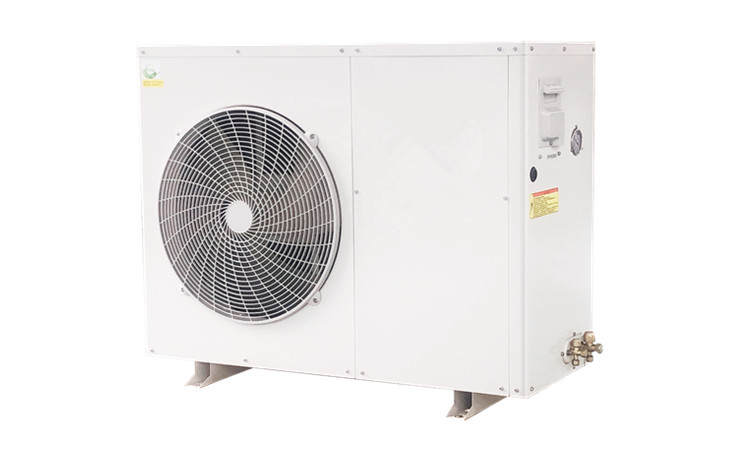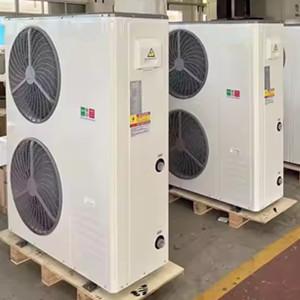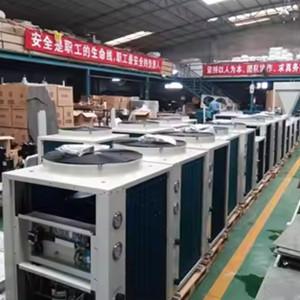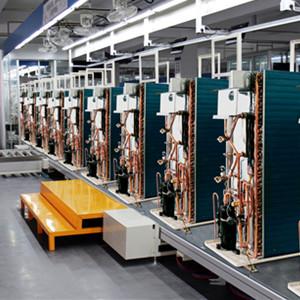Is a heat pump for high temperature heating right for you?
Why do we need a high temperature heat pump?
For homeowners, renewable energy heat pumps play an important role in
decarbonizing our houses. Although ordinary heat pumps can comfortably heat our
houses, they require us to install larger radiators and provide strict
insulation for our properties.
High-temperature heat pumps have become a viable choice for many
families that cannot use ordinary heat pumps. High-temperature heat pumps can
run our existing radiators with little or no adjustments, but they are less
efficient and costly to install.
Our existing heating system
Most households have installed gas or oil boilers and high-temperature
radiators. For older non-condensing boilers, the temperature from the boiler to
the radiator is 80 degrees.
For modern condensing boilers, the heating temperature should be lower
in order for the boiler to operate with higher efficiency, although this rarely
happens in practice. However, the 65 degree temperature of the boiler can
definitely run a heating system based on a standard radiator.

Disadvantages of ordinary heat pumps:
All air source heat pumps are viable alternatives to our gas and oil
boilers. Their standard capacity is between 3-16kW, and it is possible to heat
most homes; on very cold days, the average heat demand is only 6-8kW.
However, when the heating system temperature is 35-45 degrees, the
efficiency of the ordinary heat pump is the highest. Our houses can still use
this lower temperature for heating, but our radiators need to be much larger to
emit more heat. Therefore, unless we significantly increase the level of
insulation, the new low-temperature heat pump will also mean a new radiator.
The advantages and disadvantages of high temperature heat pumps:
The advantage of the high-temperature heat pump is that it is designed
to operate at 80 degrees, and it can directly replace oil or gas boilers
without the need to replace radiators. And you don’t need to add backup power.
The disadvantage is that the installation cost of high-temperature heat
pumps is higher and the efficiency is lower than that of low-temperature heat
pumps. The external unit is also much larger, so a garden is needed.
Nevertheless, they may be the only choice for some families.
When is a high temperature heat pump suitable for me?
There is no doubt that the next decade will promote the insulation of
our houses so that we can adapt to low-carbon technologies, especially
low-temperature heat pumps.
However, certain properties may not achieve significant insulation
levels, such as the listed and older properties. If your heating system is
unlikely to operate at 45 degrees, then a high-temperature heat pump is a good
choice. It can be installed now and you can immediately partially decarbonize
your house.
High temperature heat pump efficiency
With the correct settings, the homeowner can expect the SCOP to be
approximately 2-2.5. This means that for every unit of electricity, the unit
will generate 2-2.5 units of free energy from the air.
SCOP is the annual efficiency of the heat pump. In winter, when the heat
pump is operated at a higher temperature, the efficiency will be significantly
reduced, and in the spring and autumn months, when it can be operated at a
lower temperature, the efficiency will be significantly reduced.
Although high-temperature heat pumps can heat 65 or 80 degrees, this
does not mean that they should be operated at this temperature. The higher the
temperature, the lower the efficiency. The heating system should be designed as
low as possible and only rely on the highest temperature when absolutely
necessary.
How do I find quality suppliers?
Leomon Technology is a professional heat pump manufacturer in China. We
have decades of experience in heat pump production. Our professional high
temperature heat pump has stable quality and excellent performance. If you are
looking for a perfect substitute for the boiler, but do not want to make major
changes to the existing cooling system. Please contact us. We provide free
quotation service.





